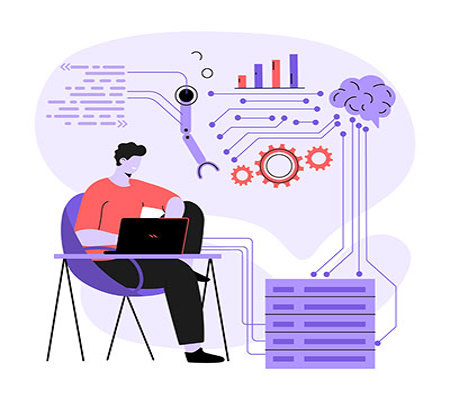The Use of Artificial Intelligence in Web Design

The Use of Artificial Intelligence in Web Design
Introduction
Artificial Intelligence (AI), as one of the most significant technological revolutions in recent decades, has greatly influenced various industries. One area that has undergone significant transformation due to AI is web design. Utilizing AI tools and techniques in web design has empowered users to have a better user experience and has optimized website performance.
In this blog post, we will explore the application of artificial intelligence in web design and its impact on improving user experience and website efficiency. From machine learning algorithms and neural networks to natural language processing and recommendation systems, AI tools serve as central technologies in web design.
1. Machine Learning in Enhancing User Experience
Machine learning is a fundamental concept of AI that enables websites to enhance user experience by analyzing user data and information. Machine learning algorithms can examine user behavior on the website and personalize content and communications based on their needs and preferences.
For instance, machine learning algorithms can analyze user transaction samples and identify behavioral patterns. This information assists website administrators in tailoring content, products, or services more accurately to their target audience, leading to an improved user experience.
2. Natural Language Processing and Improved User Interaction
Another application of AI in web design is the use of Natural Language Processing (NLP). NLP allows websites to understand user needs and requests and respond to them automatically. For example, chatbot applications and voice interfaces built on NLP can enable users to interact with the website via chat or speech, expressing their needs directly.
Enhancing user interaction with NLP helps websites respond promptly to users and improves the user experience. This capability significantly enhances user engagement and makes interactions between users and websites more interactive.
3. Recommendation Systems and Increased Traffic
Recommendation systems are also among the AI tools utilized in web design. These systems, by analyzing user behavior and their browsing history, suggest related content and products to users. For example, a recommendation system in an online store can propose products related to ones the user has already purchased.
Recommendation systems notably enhance user experience by enabling users to quickly access relevant content or products, leading to a more positive purchasing experience. Moreover, they contribute to increased website traffic and have a positive impact on SEO and marketing efforts.
4. Automated Content and Design Optimization
AI can assist web designers in automating content and design optimization. From automated content generation to web page design based on user pattern analysis, AI streamlines design time and costs while improving website quality.
5. Prediction and Forecasting
AI can play a crucial role in prediction and forecasting. By analyzing past data and user patterns, AI can provide insights into future user needs and interests. This information can be used to improve marketing and advertising strategies.
Conclusion
AI, through its diverse range of tools, allows web designers to significantly enhance user experience and website efficiency. From machine learning to natural language processing and recommendation systems, AI empowers designers to create unique and optimized websites that support marketing, communication, and business growth. AI, as a cutting-edge innovation in the world of web technology, promises a bright future and brings pride to web designers.
Click here to place an order for website design and programming